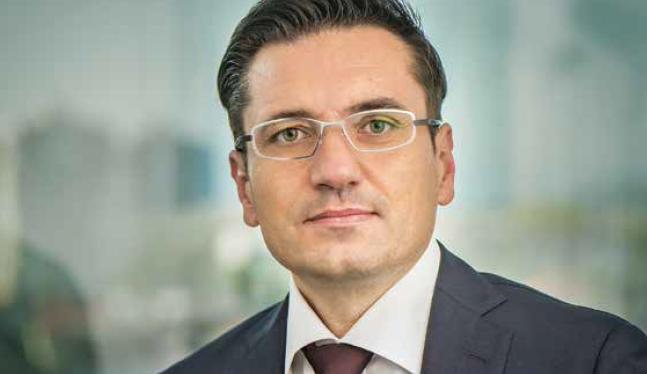We want to grow together with our customers and in doing so comply with all their needs and requirements
BASF is the world’s largest chemicals manufacturer with the headquarters in Ludwigshafen am Rhein. This German giant, who celebrated 150th anniversary two years ago, has companies in more than eighty countries and supplies products to a large number of business partners in nearly every part of the world. At the end of 2016, the company employed more than 114,000 people and posted sales of EUR58 billion.

For this issue we spoke with Simon Franko (46), BASF Srbija Managing Director who is a chemical engineer with 18 years of BASF experience. His career in BASF is related to various positions within the Coatings Division, including Managing Director roles of BASF Coatings Services in Slovenia and Romania and Account Manager role of Renault for EMEA (Europe, the Middle East and Africa). Currently, Simon Franko is Managing Director responsible for Serbia, Slovenia, Croatia and Bosnia and Herzegovina.
How much is Serbia’s EU integration process important for BASF business?
— The European Union is an exquisite example of how people and countries can collaborate across borders and diversity boundaries. In BASF, we perceive diversity as one of the key factors for doing business, therefore we constantly promote differences as way of connecting.
We have monitored Serbia’s economic and political situation since 1985, when BASF opened office in Belgrade and we regard Serbia as a fast evolving and extremely important part of South-East Europe’s market. Serbia opened Chapters 5, 23, and 24, which will help further establishment of rules, reliability of the legal system and it will ensure a decrease of unnecessary bureaucratic process and more transparency and competency in administrative and legislative processes. These advances are very important for foreign companies in Serbia, such as BASF. In future, we would be glad to see improvements in the field of food safety, so we would wish for Serbia to open Chapters 11 and 12 – Agriculture and Rural Development and Food Safety, Veterinary and Phytosanitary Policy.
According to you, what is the most important prerequisite for creating synergy on the regional market from the aspect of economic policies (tax, customs policies, etc.)?
— We need simple and fast procedures since contemporary productions are planned on the “just-in-time” principle. But for example, customs, functions on a different principle – procedures vary and you cannot plan well enough. Customs are there to protect local interests, but due to the outdated procedures or situation on the market, they are now working against local interests. Nowadays, you simply cannot leave a truck waiting at a border.
Moreover, product registration is sometimes a big problem. For example, we tested and redistricted product in the EU and the US and then we must do it again in Serbia. If a product is up to standards of the EU regulations, it would be normal to assume it is up to standard in Serbia also. Trice the testing, trice the cost and if the market is small, companies don’t even want to apply for registration and the product never reaches the market, which is just bad for customers.
Which are the most important BASF’s business goals for 2017?
— Satisfied customers are our first and most important goal! We want to grow together with our customers and in doing so comply with all their needs and requirements. Observing the situation in Serbia, I don’t see why we wouldn’t grow to our customers’ needs – economic situation, GDP and liquidity are better. So, if we don’t grow, the problem lies with and not in the market.
What led you to opt for educational programs for children within BASF’s Corporate Citizenship strategy?
— Chemistry isn’t easy to understand. Therefore, it is rarely a favourite subject in school. In BASF we believe chemistry will help humanity lead a life of better quality, in a healthier environment and help secure a sustainable future. That is why we want to familiarize children with chemistry and help them recognize it as a part of everyday life and not only as an abstract thought from a laboratory.
Europe needs more people educated in natural sciences and we believe our educational programs are efficient way of getting children interested in studying chemistry; for example, in Serbia we partner with the Faculty of Chemistry at the University of Belgrade. In cooperation with them we have been managing projects called Chemgeneration, meant for high-school students and BASF Kids’ Lab – educational workshops for elementary schools. These projects are meant to promote chemistry and natural sciences.